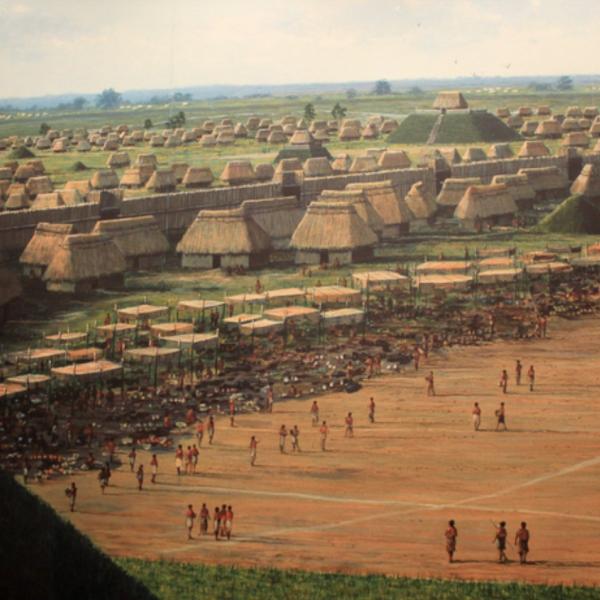The small conference is having a big impact on the Department of Political Science. This annual event brings together students and nationally known scholars for a day of in-depth discussions and networking.
A decade ago, Margit Tavits had an idea for an annual political science conference that would break the mold. Instead of a standard seminar with short presentations and hundreds of attendees, Tavits envisioned a small gathering where nationally recognized researchers could engage in deep discussions about their work with WashU faculty and students.
“It now has a reputation as somewhere to get good feedback on your work,” said Tavits, chair and professor of political science. “People who are fully engaged in your field and with your research offer constructive feedback that helps elevate it.”
The Comparative Politics Annual Conference has become well-known in the political science field over the last 10 years, Tavits said. Every spring, on the last day of classes, the WashU political science department comes together to host a handful of outside scholars who present on a topic at the forefront of their field. This year's theme, “Political Behavior and Emotions,” brought guest scholars from across the country to campus at the end of April.
The conference, commonly known as CPAC (and, yes, the department is well aware of the other famous CPAC in politics, but Tavits says they’ve come to embrace it), is modeled after a reading group. The visiting scholars briefly present their research before a discussant leads the 30 or so attendees in an in-depth conversation about the project, sometimes lasting as long as an hour. Everyone who attends the conference commits to reading every paper prior to the presentations to ensure they have sufficient knowledge to analyze the work.
Political science graduate students have a central role in the event, Tavits said. They pick the theme, do much of the planning, and take on a vital role as chief discussants for each session’s Q&A.
Wei Meng Jeremy Siow, one of this year's graduate student organizers, said the conference presents a unique opportunity for graduate students. “This event is graduate student-driven and graduate student-centric,” he said. “It’s a chance for us to interact directly with those who are doing cutting-edge research in the field.”
It’s also a chance for them to make key connections as they prepare to enter the job market. Many of the outside scholars who attend have decision-making power on search committees, and some student leaders have gone on to land job interviews because of the conference. “We get so many compliments about our graduate students,” Tavits said.
Rex Weiye Deng, a third-year political science graduate student, said he’s inspired by the scholars who present at the conference. Early in their research careers, graduate students often lack the time and resources to exhaustively tackle their research questions, he said. “It's good to see examples of how to deal with questions in a more rigorous way.”
The conference is also a draw for nationally recognized researchers seeking early feedback on their work. This year, seven scholars presented and discussed their research, including Jessica Gottlieb, associate professor at the University of Houston.
Gottlieb presented her research “Depolarizing Within the Comfort of Your Party: Experimental Evidence from Online Workshops.” She said she appreciated the chance to interact with other scholars and WashU graduate students.
“CPAC is a terrific conference for outside scholars because it offers both opportunities for thoughtful and constructive feedback on recent research as well as for building relationships with people with similar substantive interests,” she said.



